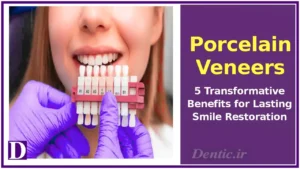
Table of Contents

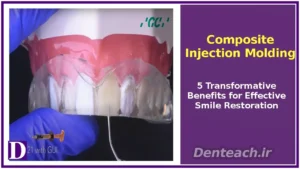
Composite Injection Molding: 5 Transformative Benefits for Effective Smile Restoration
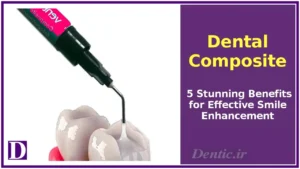
Dental Composite: 5 Stunning Benefits for Effective Smile Enhancement
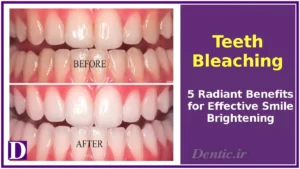
Teeth Bleaching: 5 Radiant Benefits for Effective Smile Brightening

Dental Veneer: 5 Stunning Benefits for Effective Smile Enhancement
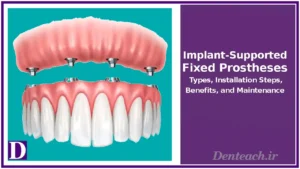
Implant-Supported Fixed Prostheses: 5 Advanced Benefits for Effective Smile Restoration
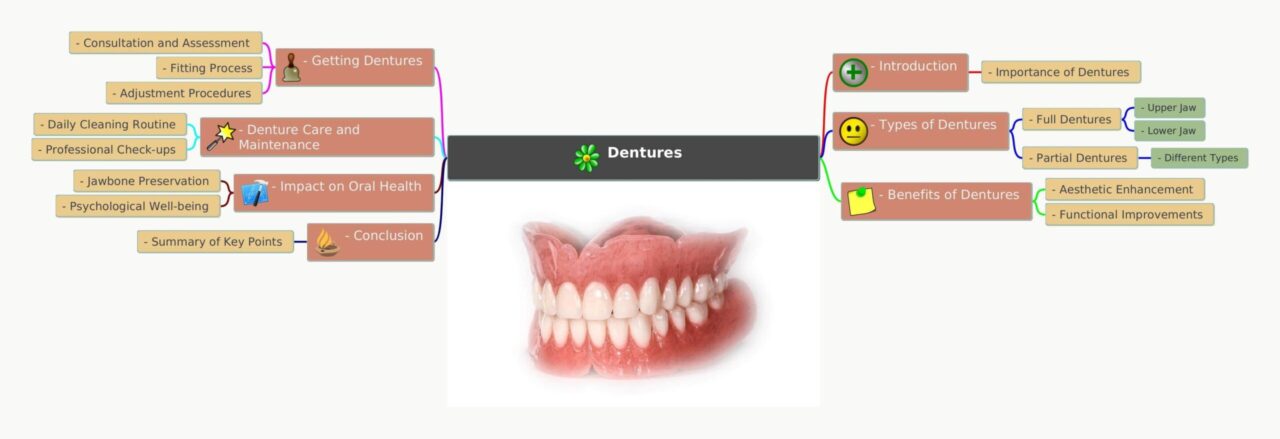
Dentures: Restoring Smiles and Oral Health with Prosthetic Precision
Dentures are removable dental prosthetics designed to replace missing teeth and surrounding tissues, restoring function, aesthetics, and confidence for individuals with tooth loss. As a key component of prosthodontics, dentures address the needs of over 40 million Americans with partial or complete tooth loss, according to the American College of Prosthodontists (ACP). By improving chewing, speech, and smile appearance, dentures enhance quality of life. This article explores the types, benefits, fitting process, care, impact on oral health, challenges, and future trends of dentures, highlighting their transformative role in restorative dentistry.
Defining Dentures
Dentures are custom-made, removable appliances that replace missing teeth and restore oral function and aesthetics. Crafted from materials like acrylic, resin, or metal alloys, they mimic the appearance and function of natural teeth and gums. Dentures address tooth loss caused by decay, trauma, periodontal disease, or congenital conditions, which can impair chewing, speech, and facial structure. Available as full or partial appliances, dentures are tailored to each patient’s needs, offering a cost-effective, non-surgical solution compared to implants, with high patient satisfaction rates (over 85% per ACP surveys).
Types of Dentures
Dentures come in two primary forms, each suited to specific needs:
- Full Dentures: Also called complete dentures, these replace all teeth in the upper or lower jaw (or both). Made from acrylic with porcelain or resin teeth, they rely on suction or adhesives for stability. Ideal for edentulous patients, full dentures restore aesthetics and function, with fitting adjustments ensuring comfort.
- Partial Dentures: Designed for patients with some missing teeth, partial dentures use a metal or acrylic framework to anchor artificial teeth, integrating with natural teeth via clasps. They prevent tooth shifting, restore chewing, and blend seamlessly with existing dentition.
Benefits of Dentures
Dentures offer significant advantages:
- Improved Aesthetics: Restore a natural-looking smile, enhancing facial appearance and boosting self-esteem, with 90% of patients reporting improved confidence.
- Enhanced Chewing and Speech: Improve mastication efficiency and speech clarity, addressing issues like slurring caused by tooth loss.
- Facial Support: Prevent sagging of facial muscles, maintaining youthful contours and reducing premature aging.
- Cost-Effectiveness: More affordable than implants ($1,000–$3,000 vs. $3,000–$5,000 per arch in the U.S.), with insurance often covering part of the cost.
- Non-Invasive: Require no surgery, making them accessible for patients unable to undergo implant procedures.
Indications for Dentures
Dentures are recommended for:
- Complete Tooth Loss: Edentulous jaws requiring full dentures to restore function and aesthetics.
- Partial Tooth Loss: Missing teeth causing gaps, affecting chewing or smile appearance.
- Periodontal Disease: Advanced gum disease leading to tooth loss, necessitating replacement.
- Aesthetic Concerns: Desire to improve smile appearance or facial structure.
- Functional Impairment: Difficulty chewing or speaking due to missing teeth.
The Denture Fitting Process
The denture journey involves several steps:
- Consultation and Assessment: The dentist or prosthodontist conducts a thorough oral exam, using X-rays or digital scans to assess jawbone, gums, and remaining teeth. Patient goals (aesthetics, function, budget) are discussed.
- Impressions and Design: Precise impressions of the mouth are taken to create custom dentures. Digital tools like CAD/CAM may be used for accuracy.
- Fitting and Adjustments: A trial denture is tested for fit, comfort, and aesthetics. Multiple adjustments (2–4 visits) ensure proper bite and stability.
- Final Placement: The finalized denture is delivered, with instructions for use and care.
- Follow-Up: Regular visits (every 6–12 months) monitor fit, function, and oral health, addressing issues like wear or gum changes.
Denture Care and Maintenance
Proper care extends denture longevity:
- Daily Cleaning: Remove dentures nightly, brush with a soft denture brush and non-abrasive cleaner, and soak in denture solution to prevent bacterial buildup and odors.
- Oral Hygiene: Brush gums, tongue, and remaining teeth to maintain oral health and prevent irritation.
- Regular Check-Ups: Visit the dentist every 6–12 months for professional cleanings and to assess denture condition, as 20–30% of dentures require relining every 5 years.
- Handle with Care: Store dentures in water or solution when not in use to prevent warping or cracking.
- Avoid Damaging Foods: Limit hard or sticky foods to prevent denture damage or dislodgement.
Impact of Dentures on Oral Health
Dentures significantly enhance oral health and well-being:
- Jawbone Preservation: While not as effective as implants, dentures provide some stimulation to maintain jawbone structure, reducing resorption (60–70% of edentulous patients experience bone loss without prosthetics).
- Gum Health: Properly fitted dentures prevent irritation and sores, promoting healthy gums when maintained.
- Psychological Well-Being: Improved aesthetics and function boost confidence, reducing social anxiety and enhancing mental health, with studies showing 80% improvement in patient self-esteem.
- Functional Restoration: Restore chewing and speech, improving nutrition and communication.
Challenges and Considerations
Challenges include:
- Adaptation Period: Initial discomfort or speech changes, resolving within 1–2 months for 90% of patients.
- Cost: Full dentures cost $1,000–$3,000 per arch; partials cost $500–$2,000, though insurance may help.
- Maintenance: Requires diligent cleaning and periodic relining or replacement every 5–7 years.
- Stability Issues: Full dentures may loosen over time due to bone resorption, requiring adhesives or relining.
- Not Permanent: Unlike implants, dentures are removable and may need adjustments as oral anatomy changes.
Future Trends
Denture technology is advancing:
- Digital Dentures: CAD/CAM and 3D printing enable precise, rapid fabrication, reducing costs and turnaround time.
- Advanced Materials: Stronger, lighter acrylics and resins improve comfort and aesthetics.
- Implant-Supported Dentures: Overdentures anchored to implants enhance stability and function.
- Bioactive Coatings: Research into antimicrobial coatings may reduce bacterial buildup on dentures.
Conclusion
Dentures are a vital solution for restoring smiles, function, and confidence in individuals with missing teeth. Through full or partial designs, they offer accessible, non-surgical options for oral rehabilitation. With proper care and innovations like digital dentures and implant support, dentures continue to evolve, delivering lasting results. Patients considering dentures should consult a certified prosthodontist or visit American College of Prosthodontists for personalized care options.
